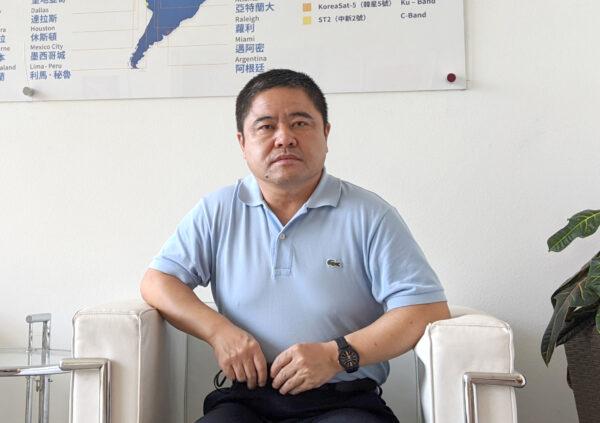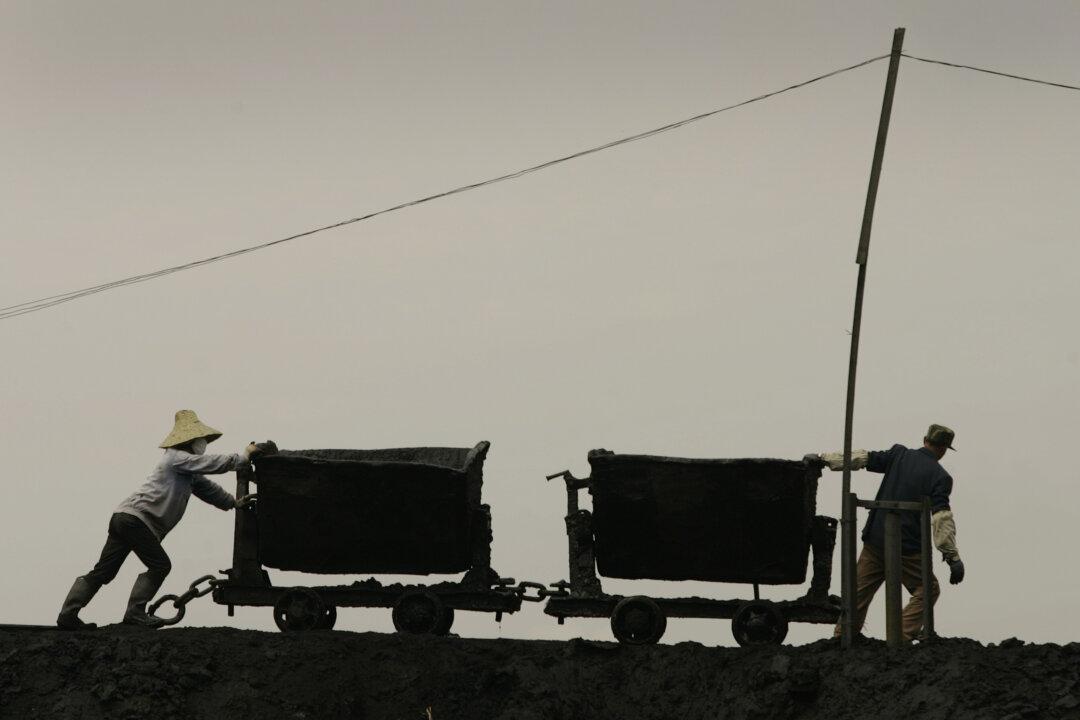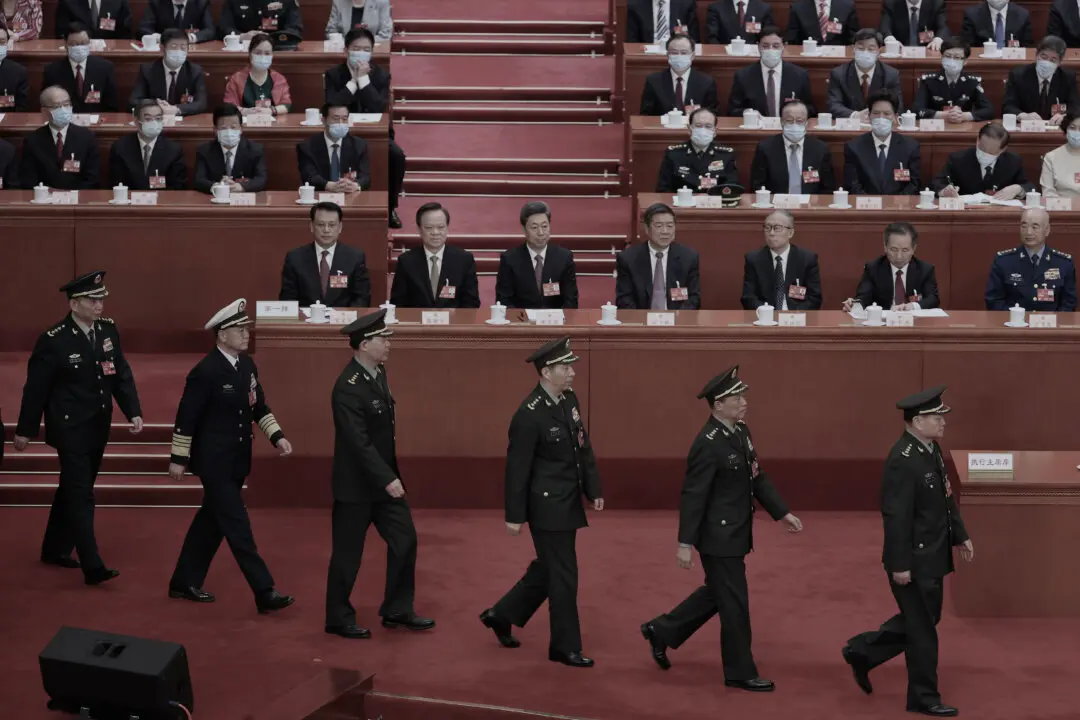The former deputy mayor of Jixi city in northeastern Heilongjiang Province reveals the tight control of speech and information in China, the regime’s cover-up of COVID-19 cases, Communist Party officials secretly taking medicine to prevent virus infection, and the recent upsurge of petitioning across the country.
“I quit the Chinese Communist Party [CCP] using my real name,” Li Chuanliang, the former deputy mayor of Jixi, stated in an interview with the Chinese-language Epoch Times on Aug. 19.
Li had left his post of deputy mayor and quit public office in 2014. He has refused to pay the Party dues for many years and considered himself no longer a Party member.

On Feb. 14, Kong Lingbao, a former subordinate of Li in the Jixi municipal government, was dismissed from his official post and arrested for his remarks about the CCP and for covering up the severity of the COVID-19 epidemic. Kong’s home and offices were also searched by the police.
Upon hearing the news, Li feared that he would be implicated for making similar remarks and for his political views. With the help of overseas democracy activists, he fled from China during the pandemic and eventually arrived in the U.S. city of Los Angeles recently.
Many may wonder why Li had to resign from public office—as a former deputy mayor, he is still a communist cadre and entitled to many special benefits and treatments in China. In response to this, Li said, “No way, I really can’t bear it anymore.” As a certified accountant, auditor, tax agent, with an EMBA (Executive Master of Business Administration) degree from Tsinghua University, and having worked in finance for many years, Li always considered himself to be a skilled professional rather than a bureaucrat or communist official. “I never fit into the political circle,” he added.
At the end of 2011, Li was appointed as the deputy mayor of Jixi, while Chinese state-media reported his official appointment in May 2012. Li said that the time lag is due to the bureaucratic procedures, as CCP officials are appointed internally.
During the three years as deputy mayor, he had gradually entered the power center of the municipal government and witnessed corruption. “They [officials] embezzled the public funds of construction and land use for personal expenses. This is common in all major cities,” Li said.
However, as a low-ranking regional official, Li could only try to stop or not execute certain cases. “I used to be very blunt and reported them. But in the end, their punishment was very light, and the officials were all protecting each other.”
Li was both threatened and enticed by his superiors, implying that as long as he colluded with them, there would be a chance for promotion. He wanted to resign but got transferred to the position of deputy mayor of Hegang city in Heilongjiang Province in 2014.
In 2017, Li completely left the CCP governmental system, giving up all the benefits to become a “free man,” which is commonly known in China as a “naked resignation.” Since then, Li had worked as a corporate tax consultant. As he was no longer a government official, he was able to apply for a passport. He said, “when I got my passport, I felt that I was truly free, and I happily called my friends to tell them about it.” In recent years, Beijing has put out regulations to restrict officials’ new application for personal passports and to confiscate all officials’ current passports to prevent them from fleeing to other countries.
Since the CCP virus (novel coronavirus) outbreak, the regime has further tightened the control of information and speech. Li is very worried that China will return to the Cultural Revolution period (1966-1976), during which the communist regime initiated violent persecution campaigns against those deemed “anti-revolutionary.”
Before the pandemic, Li shared his views on current affairs, the CCP’s system, and the ills of the Party with like-minded friends on social media group chats and at dinner parties. He said, “I was not without worries before, but I did not expect it to be this bad.”
Under the current situation in China, he believes that few people dare to say anything anymore, as the CCP encourages people to watch and snitch on each other, and further clampdowns on the freedom of speech, especially with its national network of artificial-intelligence-enhanced surveillance cameras, known as the “Skynet Project.”
One of the charges for Li’s former subordinate Kong was “publishing improper speech.” But Li wonders what “improper speech” actually means. Kong’s remarks during a private conversation with another CCP cadre was recorded and reported to Party authorities. He had said, “I can no longer sell my life to the Communist Party. I cannot do its bidding anymore.” Kong got into the authorities’ crosshairs as a result, Li said.
Another reason for Kong’s arrest is that he refused to cover up the number of CCP virus infection cases in his district, Li said. In early February of this year, the epidemic in China was severe, but authorities did not allow local officials to report it. As the leader of Hengshan district of Jixi city, Kong saw with his own eyes that unemployed workers from the local coal mines were infected with the virus one after another. The spread of the virus was rampant and Kong decided to report it to his superiors. However, authorities listed this as his crime of “failure to fulfill his duty in epidemic prevention and control.” Li said, “This is a typical ‘scapegoating.’ Those who speak for the common people get convicted.”
Li has heard of CCP officials taking hydroxychloroquine to prevent against COVID-19 infection, but the majority of Chinese people in the mainland don’t know about it unless they are government officials or are able to read information on overseas websites through VPN to bypass the regime’s firewall. When Li was still in China, he made inquiries about this medicine but could not get his hands on it.
Following the CCP virus outbreak, every Chinese citizen was given a health code installed in their cellphones. Li describes it as wearing a 24-hour, all-round monitor. However, he has noticed that many people don’t mind the privacy invasion.
Li also refuses to believe the CCP’s data on the pandemic, as it lacks transparency and the information is inaccurate.
“The current social environment in China is that they are only concerned with looking good on the surface, while they care little about the reality. There are more false things than real ones,” Li said. Amid the pandemic, he has noticed that many laid-off workers have no income, but the topic is rarely talked about among officials or reported by Chinese media, he added.
Li said he witnessed firsthand how authorities’ policies were harmful to citizens. “How come a house can be demolished just a few years after being built? Because the developers’ interests are tied to it!” He points out that this is the reason behind officials’ corruption—policies benefit interest groups.
Li said that most appeals and complaints filed by petitioners to higher authorities in China are not groundless.
Li also believes that if there are only a small number of people filing complaints, then they are just individual cases; but with so many people petitioning in China, it means that there must be something seriously wrong with government officials. “The Chinese Communist system is actually the biggest problem in China,” he said.
Li said that in China, whether someone is a high-ranking official, an entrepreneur or an intellectual, as long as they have a little conscience, they will have a lot of mental pressure. In addition to facing authorities’ various suppression policies, people also have to worry about their own safety. He said, “Even being a CCP official is a high-risk and dangerous job nowadays.”
After fleeing China, Li decided to speak up, because he believes that only by standing up can he encourage more people to distance themselves from the communist regime.




